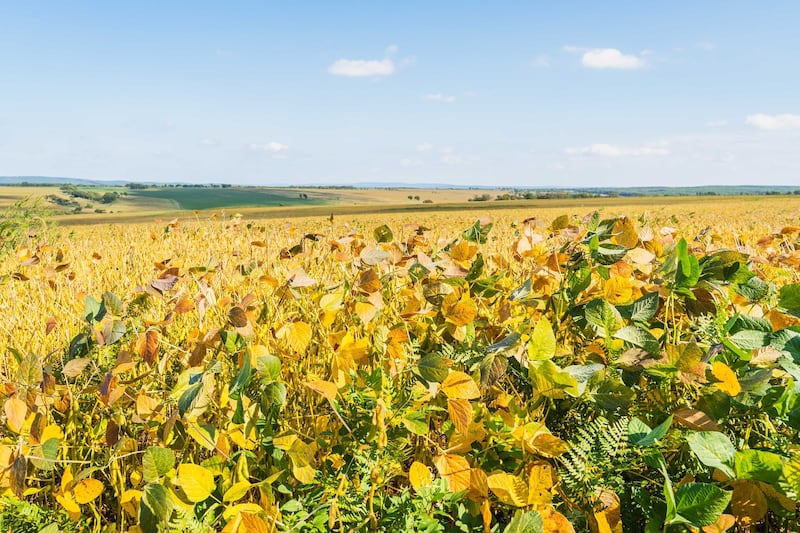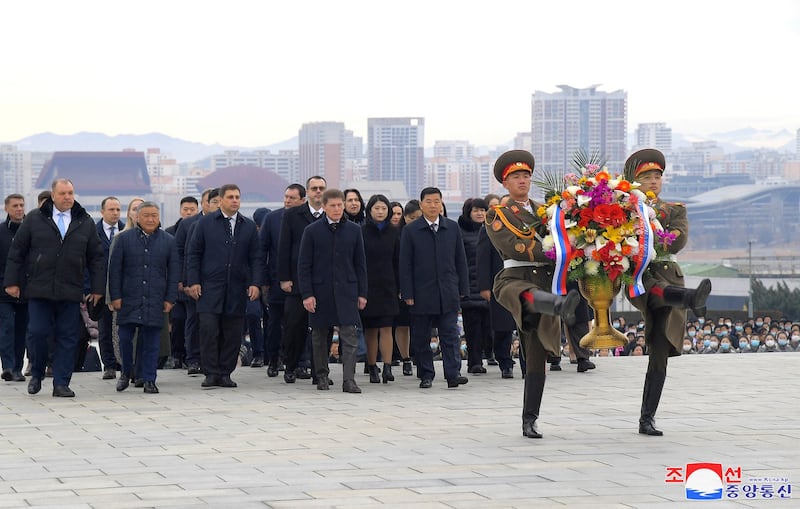A visit by a Russian governor to North Korea suggests that Pyongyang will likely send more farmers and construction workers to Russia, which appears to be suffering from a manpower shortage amid its war in Ukraine, experts told Radio Free Asia.
North Korean state media reported that a delegation led by Oleg Nikolayevich Kozhemyako, governor of Primorsky Krai in the Russian Far East, visited North Korea on Dec. 11.
Kozhemyako said last month that he was planning to visit North Korea within the year to discuss ways to cooperate in tourism, trade, and agriculture.
He announced that he would consider providing some agricultural land for North Koreans to farm, prompting speculation that such a plan was in the works.
Cash-strapped North Korea is known to send workers to countries like China and Russia to earn foreign currency, but since the end of 2019, international sanctions have mandated that all North Korean workers be sent home and no new work visas issued.
North Korea has continued to send workers to China and Russia by utilizing loopholes such as sending them on student or visitor visas.
Labor needed
Experts in South Korea believe that the two sides will discuss sending North Korean workers to Russia’s construction and agricultural sectors. The Primorsky Krai region, whose administrative capital is Vladivostok, is known to have large farms but a small working population.
“Currently, all that Russia can provide to North Korea is food, energy, fertilizer and the acceptance of North Korean workers,” Cho Han Bum, a senior researcher at the Seoul-based Korea Institute for National Unification, told RFA Korean.
He said that during a summit between North Korean leader Kim Jong Un and Russian President Vladimir Putin in September, Putin mentioned that “something could be done in the agricultural sector.”

“The dilemma of Russia’s Primorsky Krai is that they have very little population despite having a very large area of fertile land,” said Cho. “Primorsky Krai has always favored agricultural cooperation in the form of a combination of Russian land, external labor, and funding.”
Cho also said that Russia will likely need a large amount of labor to rebuild areas it has secured through its war with Ukraine, so North Korean construction workers would also likely be necessary.
But Russia is ignoring sanctions imposed by the UN Security Council on North Korea, Kang Dongwon, a professor at Dong-A University in South Korea, told RFA.
“Ultimately, the number of North Korean workers dispatched overseas, especially to the Primorsky Krai region, for construction work is expected to increase significantly in the future,” he said. “They will try to fill the vacuum in construction and manpower caused by the war through North Korean workers.”
‘Great concern’
South Korea’s Ministry of Unification stated that it is closely watching North Korea’s worker dispatch trends.
In a meeting with reporters, a ministry official estimated that some kind of cooperation between North Korea and Russia is underway, considering the recent uptick in diplomatic activity.
“Employing North Korean workers in a third country is a violation of U.N. Security Council resolution 2397 on sanctions against North Korea,” a ministry official told RFA. “We urge all UN member states to pay attention to protecting the human rights of North Korean workers and complying with Security Council resolutions.”

“Deepening cooperation between Russia and the DPRK is a trend that should be of great concern to anyone interested in maintaining peace and stability on the Korean Peninsula,” a U.S. State Department spokesperson said. “UN Security Council resolutions regarding the DPRK remain in effect, and UN Member states are bound by their obligations under those resolutions.”
Closer ties between Russia and countries like North Korea, China, and Iran are a threat to the international community, Finland’s Defense Minister Antti Hakkanen said in a speech on December 12.
Hakkanen added that Finland is the NATO military alliance's newest member and shares a 1,340-km (830-mile) border with Russia. Finland and its intelligence services are monitoring Russia's actions globally.
Translated by Claire Shinyoung Oh Lee. Edited by Eugene Whong.
